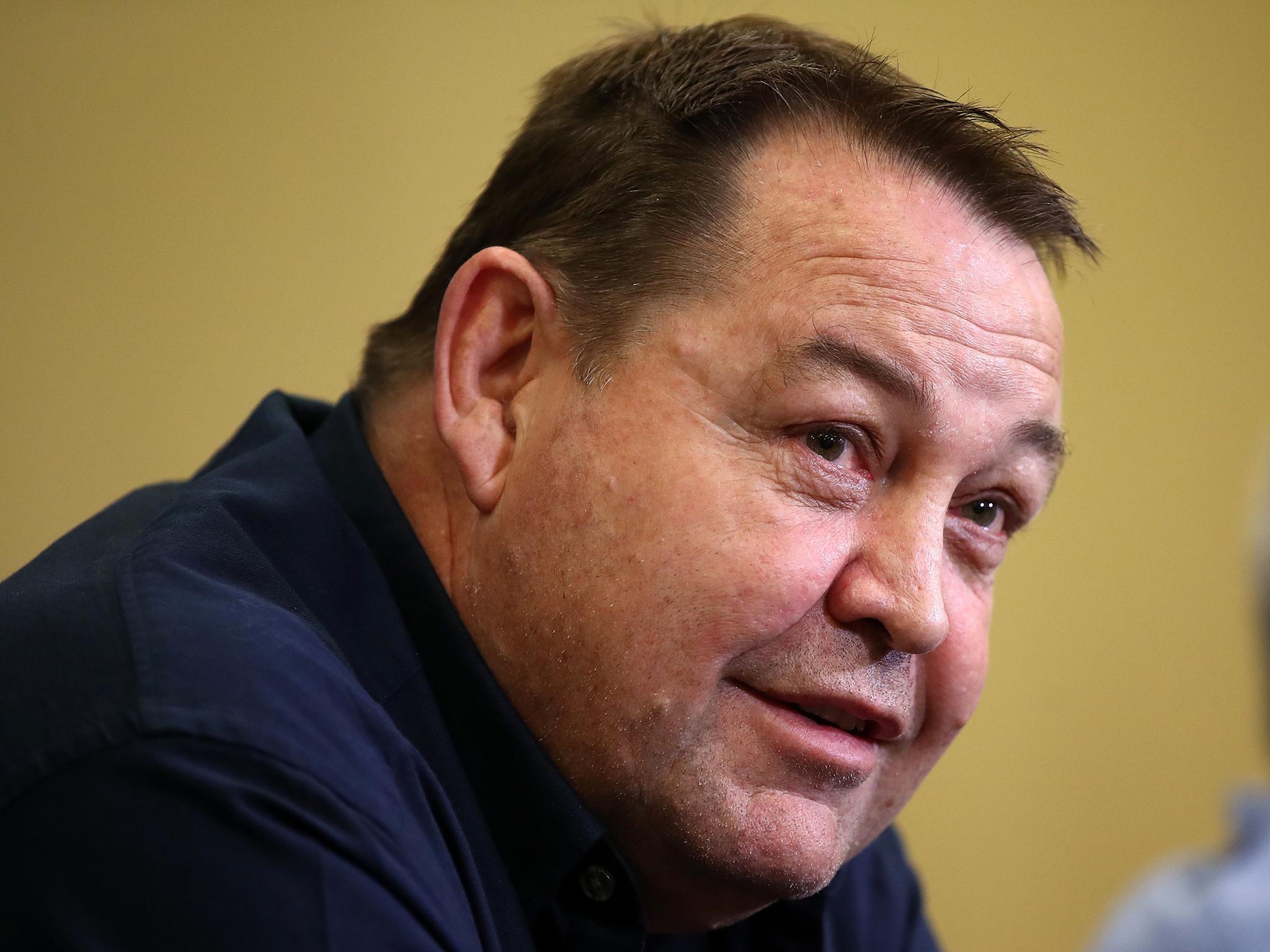All Blacks coach Steve Hansen sparks criticism by claiming domestic violence 'not a gender thing'
He made remarks while justifying selecting player charged over domestic violence to squad

The All Blacks head coach has faced criticism for arguing domestic abuse is not a gendered issue while justifying his decision to pick a player charged over domestic violence to his Rugby championship squad.
Sevu Reece was charged with “male assaults female” - the New Zealand legal term for spousal abuse - after injuring his wife in a drunken assault last year.
The 22-year-old, who is a Crusaders winger, was discharged without conviction after a judge ruled it would have a detrimental effect on his rugby career.
Steve Hansen, a former police constable who now heads up New Zealand’s national rugby team, said Reece had made a mistake but had been through the right process.
“I don't think there's one New Zealander that wouldn't have put him in the team,” Mr Hansen told Radio Sport.
“Having been a policeman I've seen a lot of this... and I know it's not just restricted to the male - women assault males. It's not a gender thing.
“[There are] two types... one, where you have a control freak, male or female...” Mr Hansen said about domestic violence while defending Reece's selection.
The All Blacks coach argued Reece could eventually become “a role model” for young men.
Mr Hansen added: “You have got to remove him out of it and say, look there’s been a domestic violence incident, do we agree with it? No, we don’t. Does the New Zealand Rugby Union? No, they don’t. Do the Crusaders? No, they don’t.
“But, it’s a big part of our society unfortunately. So, rugby is going to have people within its community that are involved in this.”
Ang Jury, chief executive of the New Zealand Women’s Refuge hit out at Hansen’s comments.
“He's referring to ideas that are old, debunked, based on his experience as a police officer some 20-odd years ago,” she told The AM Show.
The evidence that domestic violence in New Zealand is largely perpetrated by men is unequivocal, Ms Jury said.
“It's a gendered problem that New Zealand has. There is no statistic available that demonstrates anything other than that,” she added. “It would be disingenuous of me to suggest that women can't be violent... of course they can. But we know that women are hurt more often, they're hurt more seriously and they fear their partners more than men do."
New Zealand has one of the developed world’s highest rates of domestic violence – with a UN report finding the country has one of the worst records of family violence in the world.
Most recent data from 2016 shows that of all protection orders 89 per cent were made by women.
Between 2009 and 2015, there were 92 intimate partner deaths. In 98 per cent of these deaths where there was a recorded history of abuse, women were the victim, abused by their male partner.
Authorities say about a third of women in the country experience physical or sexual violence during their lifetimes and 76 per cent of incidents are not reported to police.
Police respond to a family violence incident every four minutes in the country, and family violence is estimated to cost the island in the southwestern Pacific Ocean between NZ$4.1bn and NZ$7bn a year. New Zealand’s problem of domestic violence has been attributed to a gamut of factors which include high levels of alcohol and drug use.
Leading British domestic violence charity Women’s Aid identifies domestic abuse as a “gendered crime”.
“Women experience higher rates of repeated victimisation and are much more likely to be seriously or killed than male victims of domestic abuse,” the charity explains on its website. “Further to that, women are more likely to experience higher levels of fear and are more likely to be subjected to coercive and controlling behaviours.”
According to recent figures published by the Office for National Statistics, the majority (70 per cent) of victims of domestic violence deaths are female. In 2013-14, 93 per cent of defendants in domestic violence court cases were male and 84 per cent of victims were female.
Every week in the UK, two women are murdered by a partner or ex-partner.
Join our commenting forum
Join thought-provoking conversations, follow other Independent readers and see their replies
Comments